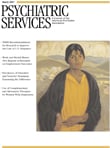Dual diagnosis, also referred to as co-occurring mental illness and addiction, is a common clinical issue that clearly worsens the course and outcomes of treatment and recovery. The topic is complex and includes a broad range of subtypes and etiological factors. The editors of Dual Diagnosis have put together a thought-provoking book based on the proceedings from a June 2003 conference held in Zurich, Switzerland.
The international perspective on dual diagnosis is enlightening and will provide many readers with new references from abroad. This text provides a good review of the complexity and heterogeneity of possible etiological models for dual diagnosis, particularly the need to subtype and consider many biopsychosocial factors. Etiological models that are described in this text include direct, indirect, and bidirectional causal models; common factor models; complex integrated models; independent development models; and a "complex vicious cycle" model.
In addition to the book's focus on theoretical conceptualization, some of the chapters offer brief but practical information on assessment strategies and a limited amount of information on treatment, including a very good chapter on how to modify the traditional therapeutic community model for patients who have a serious mental illness. As with any edited book, style and quality vary across the chapters, and there is a lack of consistency in terminology for similar models that are described in different chapters. Although there is no debate of the merits of competing models within the field, perhaps this can best occur at a live conference event. The book is weighted toward describing the substance abuse perspective of the dual diagnosis issue, with an emphasis on chemical-abusing patients who are mentally ill versus mentally ill patients who are chemical abusers. There are excellent chapters and discussions on the neurocognitive impairments caused by substances, the importance of considering subthreshold mental disorder problems and polydrug addiction, and the genetics of addiction.
The focus on serious mental illness and also on tobacco is limited. Given the early age of onset and its precursor role to other addictions and mental illness, tobacco dependence could have been expanded upon in the etiological models.
The book does meet its objectives of stimulating the reader to reconsider conceptual models describing the relationship of co-occurring mental illness and addiction. Given the emphasis of the book and the fact that it is only 160 pages, Dual Diagnosis is not a book to help the reader understand how to assess or treat individuals with co-occurring disorders.
However, co-occurring disorder specialists, residents, students, clinicians, and researchers interested in conceptual models of dual diagnosis and in an international perspective on this common problem will find this book interesting. The book may also stimulate more discussion about how to expand and study the described models. Dual Diagnosis provides a good summary of how the field has evolved over the past 25 years and leaves us waiting for the next book on how to conceptualize "integrated treatment" and what maintains co-occurring disorders over time.

